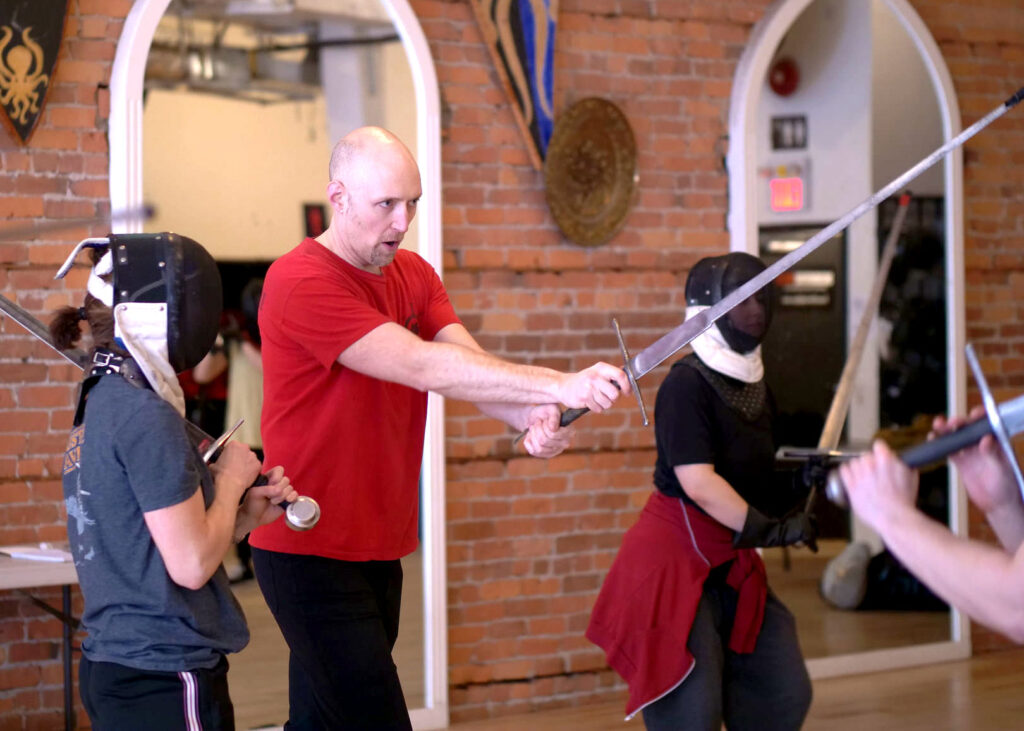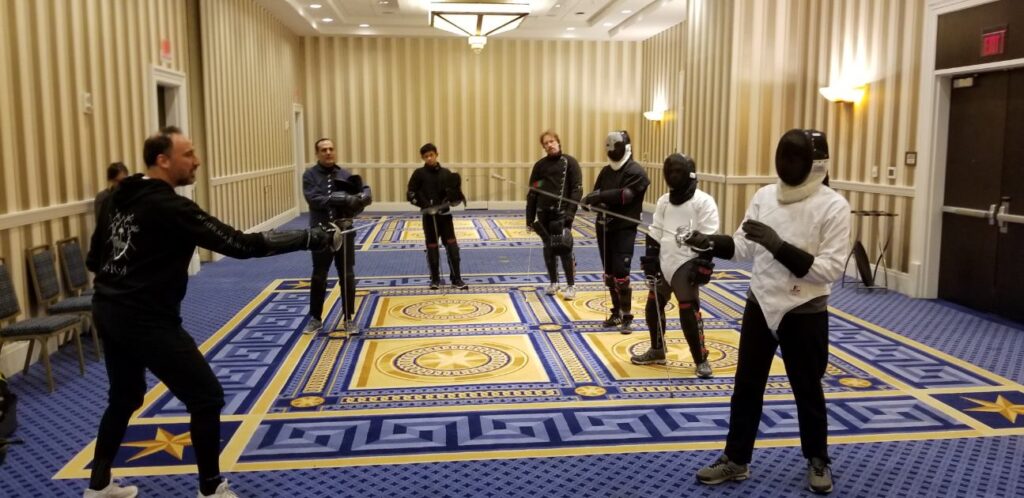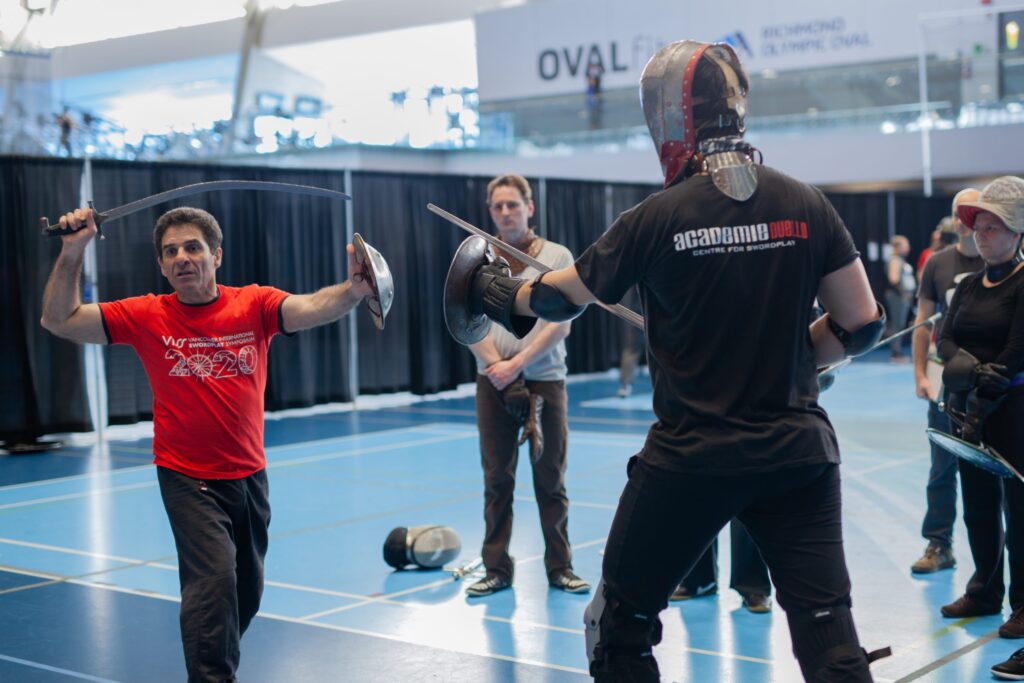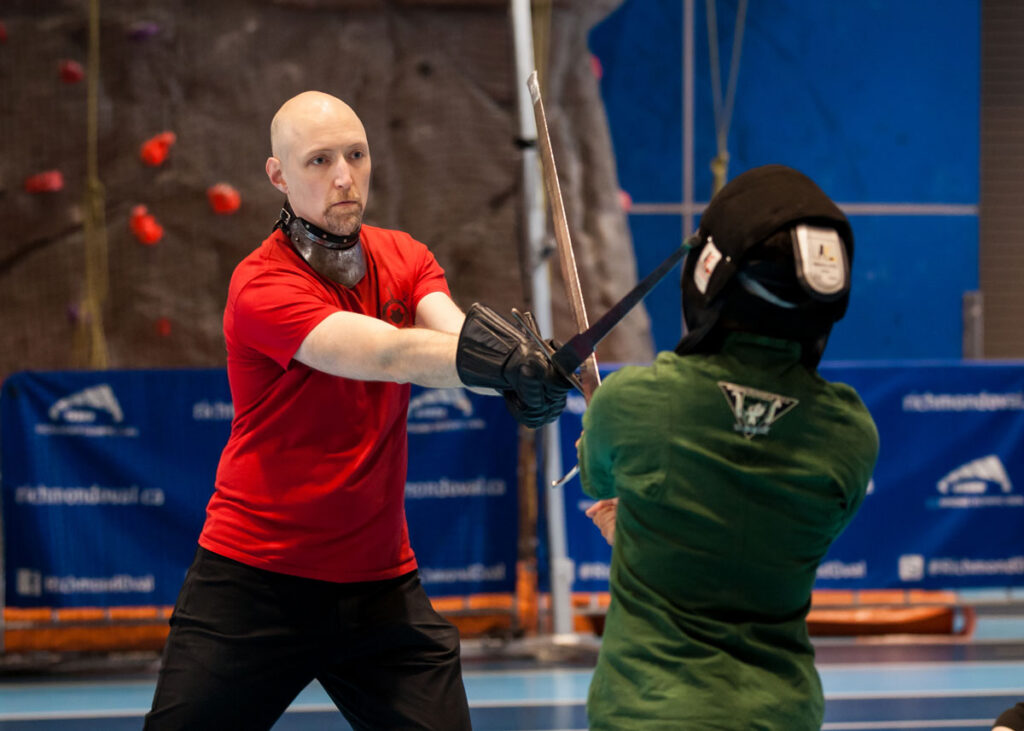VISS 2022: Three Immersive Days of Swordplay
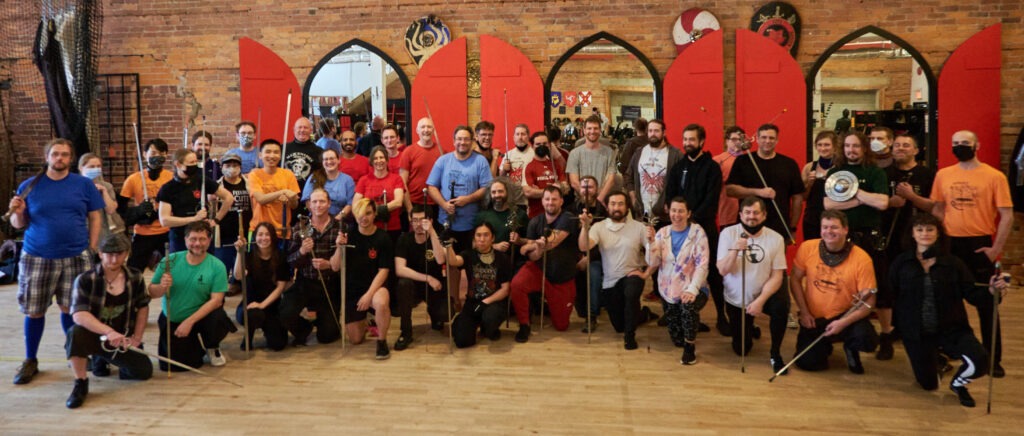
It’s been nearly a week since the 2022 Vancouver International Swordplay Symposium and I’m finally back on my feet enough to write up a brief report about this amazing event.
This year we decided to run a “mini” event with a focus on Bolognese swordsmanship, which we dubbed the Quincentenary in honour of the 500th anniversary of Bolognese fencing master Antonio Manciolino.
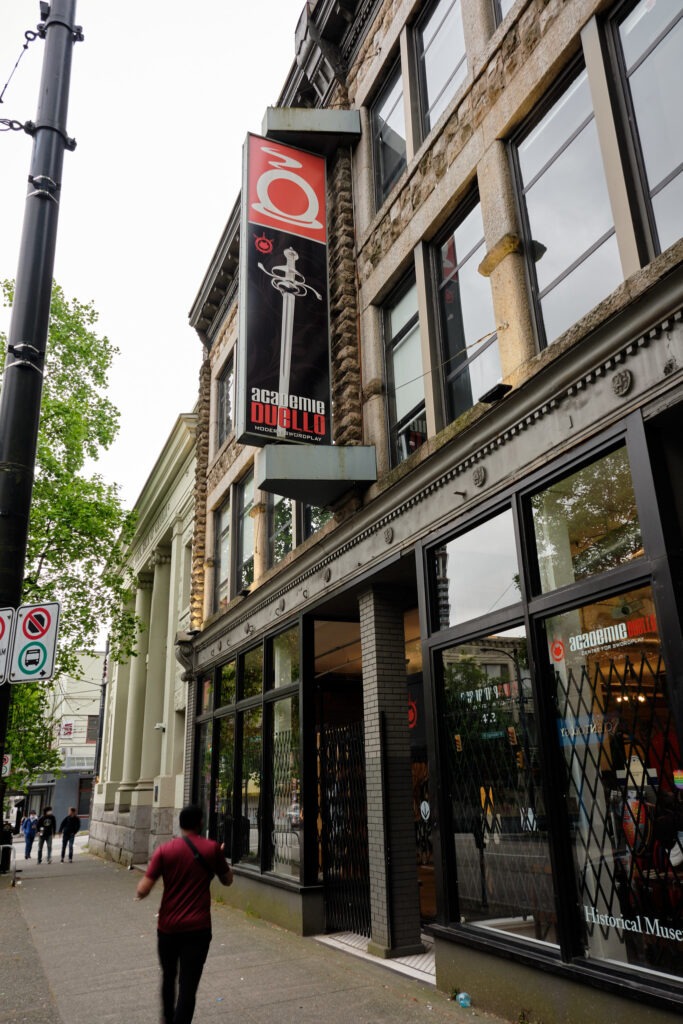
Instead of at an outside sport or conference venue, we held this event at Academie Duello which meant that everyone was in the same space throughout, taking workshops, attending lectures, and having intimate conversations on the methods and techniques of historical swordplay. The smaller space was a little cozy at moments, but our 6000 sqft centre managed to host three tracks (2 workshops, 1 lecture) largely without a hitch.
Instruction & Workshops
We had nine instructors from around North America all with a focus on Bolognese arts:
- Ken Harding & Clark Asher from the St. Louis Academy of Arms,
- Scott Jeffers and Rob Rutherfoord from the Chicago Swordplay Guild,
- Arik Mendelevitz from Fool of Swords,
- Michael Heveran of Tutta Coperta,
- Clint Fernandes & myself from Academie Duello,
- Jennifer Landels from sister school Academie Cavallo,
- and fellow organizer Stephen Fratus of East Bay Historical Fencing.
The goal was to give students a variety of perspectives on the arts to stimulate discussion, comparison, and deepen the study in this field of study as a whole.
Over the course of the three days we explored nearly all of the disciplines within the Bolognese traditions including sword in two hands, two-sword, polearms, sword alone, sword and dagger, sword and buckler, and unarmed vs dagger.
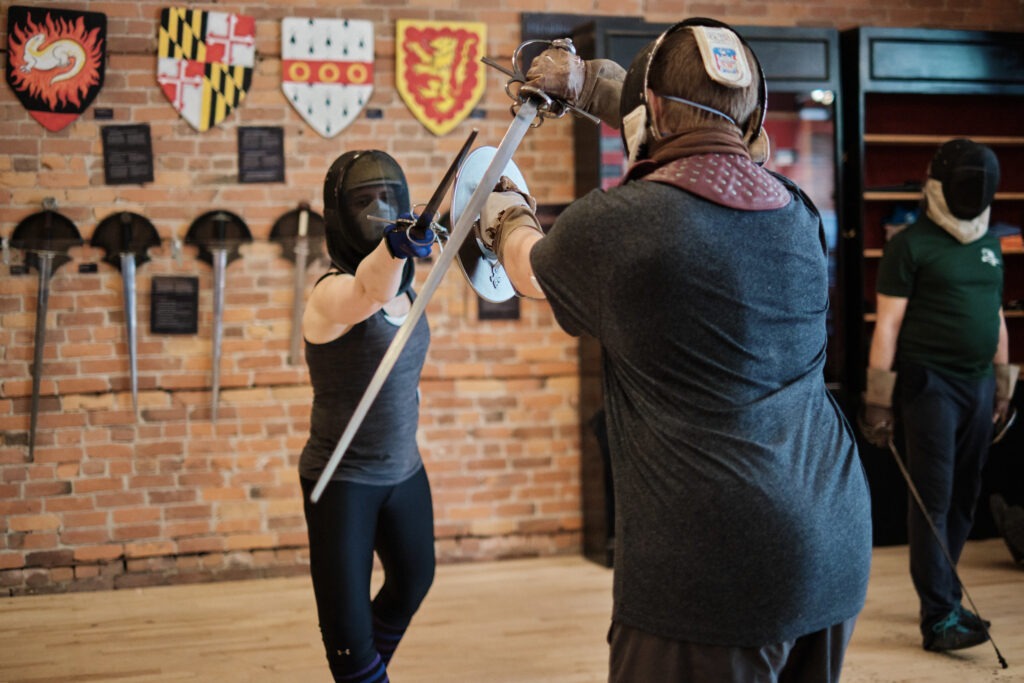
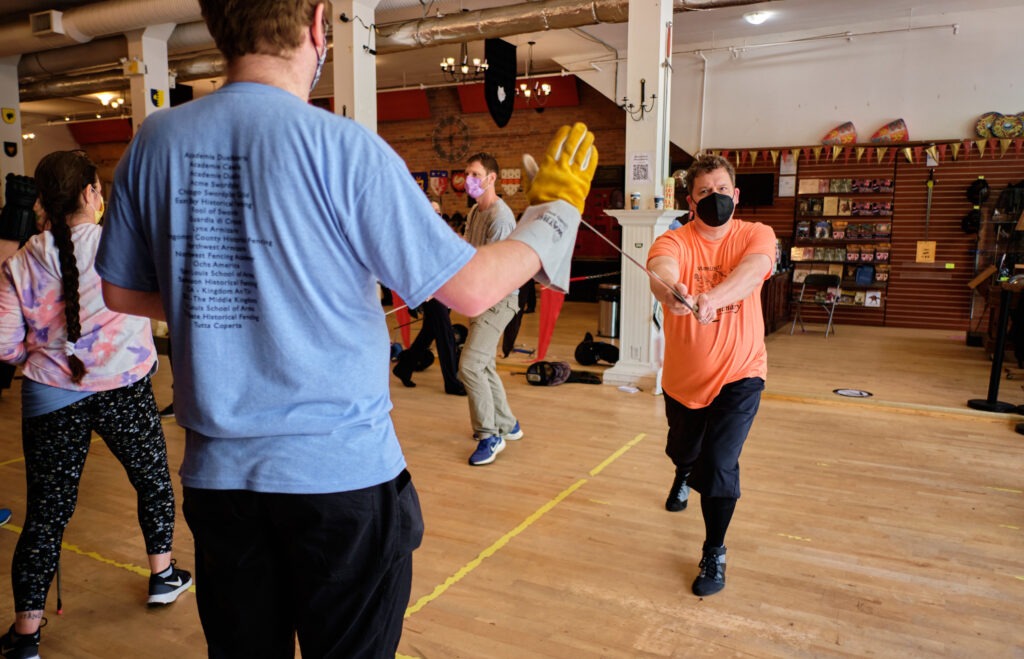
We started each day with assaults (solo and partner forms) from the various manuals. Over three days we covered all three assaults of Marrozo’s sword in two hands, as well as Dall’Aggochie’s walking of the guards, and Manciolino’s sword & buckler and two-sword assaults. This was a great way to start the day moving and forms are such a great takeaway for attendees.
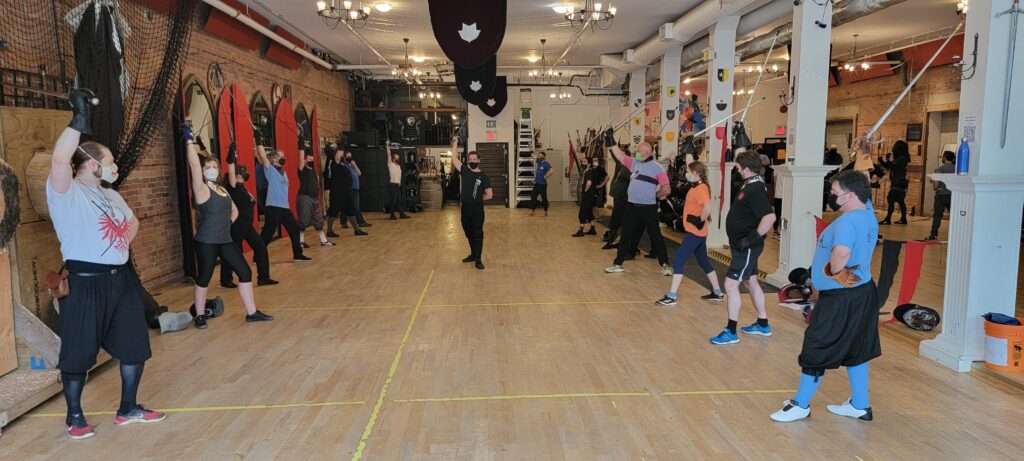
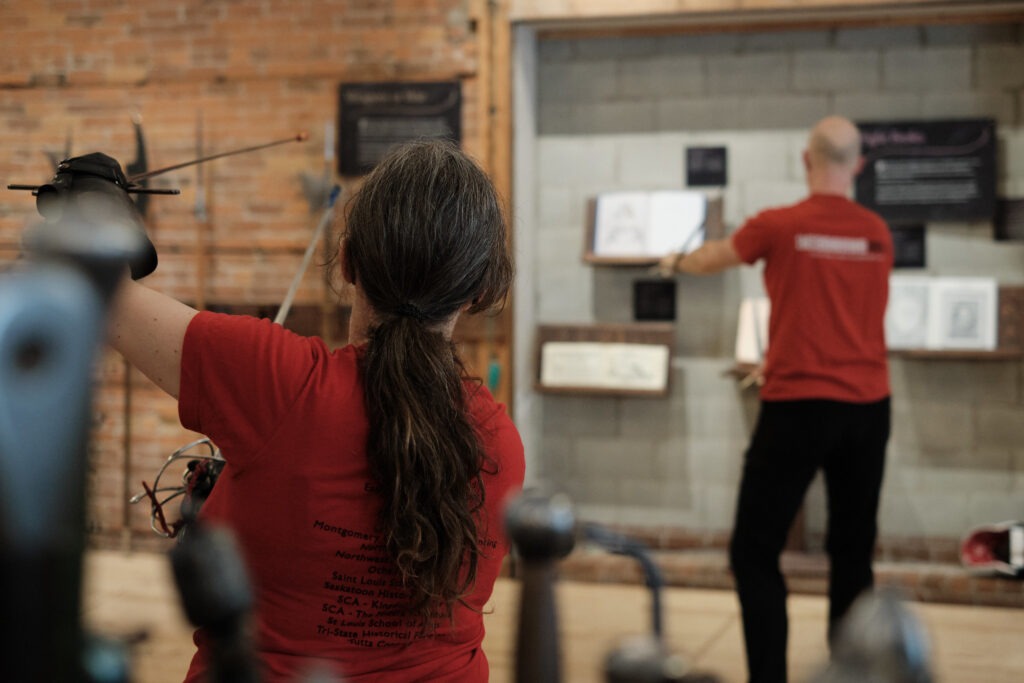
In the afternoons we got into the weeds with topics such as the nature of constraining in the Anonimo, how to understand the system of Manciolino’s strette plays, strategies for moving between gioco largo and stretto, Bolognese fencing theory, history of the masters and their works, and more. Even though it was only a three-track event it was still impossible to attend all the workshops that you wanted!
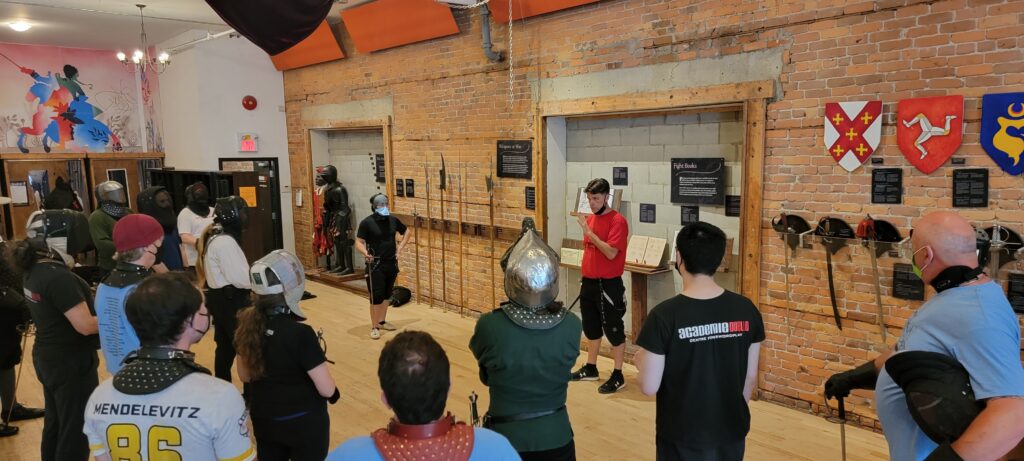
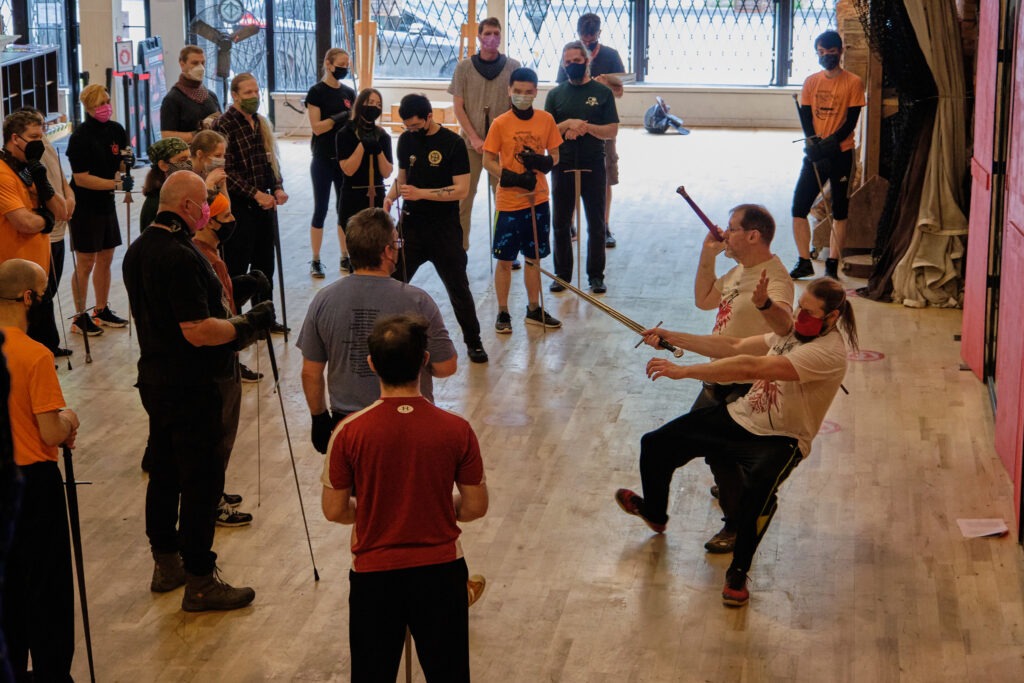
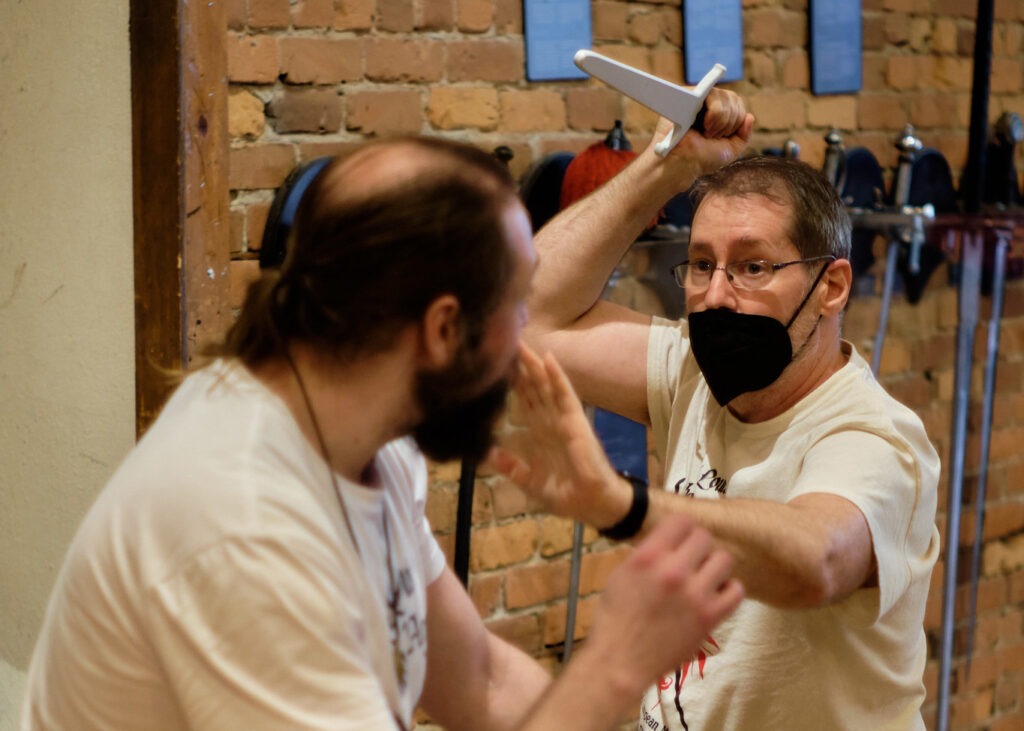
Working Groups & Accolade Tournament
The event was an immersive affair that began at 9:00 in the morning and ran late into the evening with sparring, working groups, and socializing.
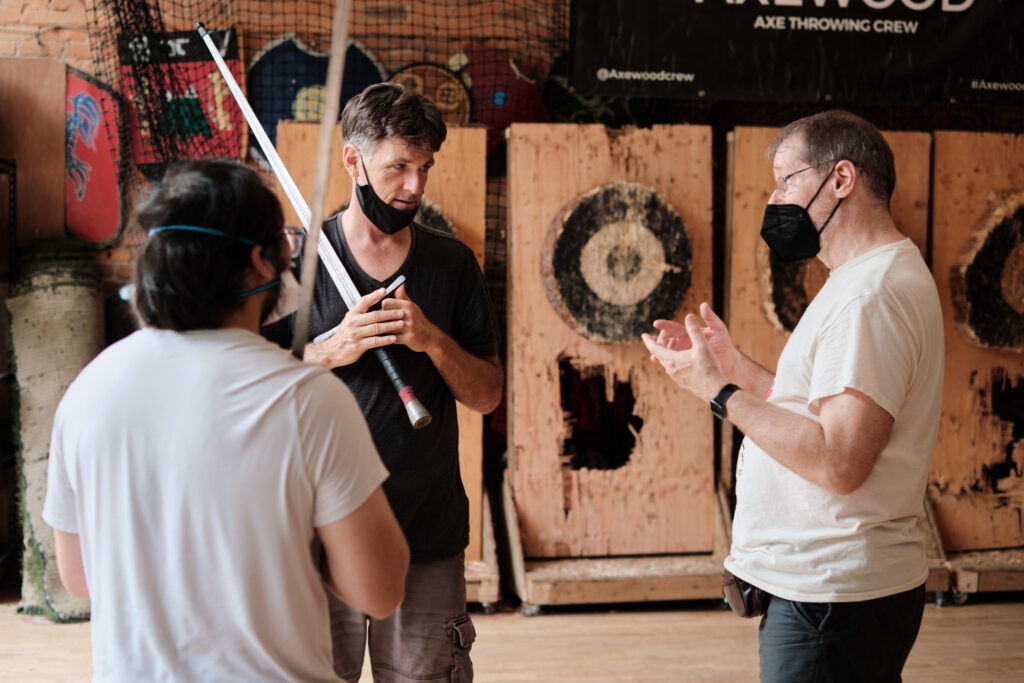
The working groups were an opportunity for small groups of passionate scholars to get together, books in hand, and debate interpretations of contentious topics within Bolognese interpretation. I think we got falso impuntato and riverso trivallato wrapped up! There will never need to be another debate on these topics again… ahem.
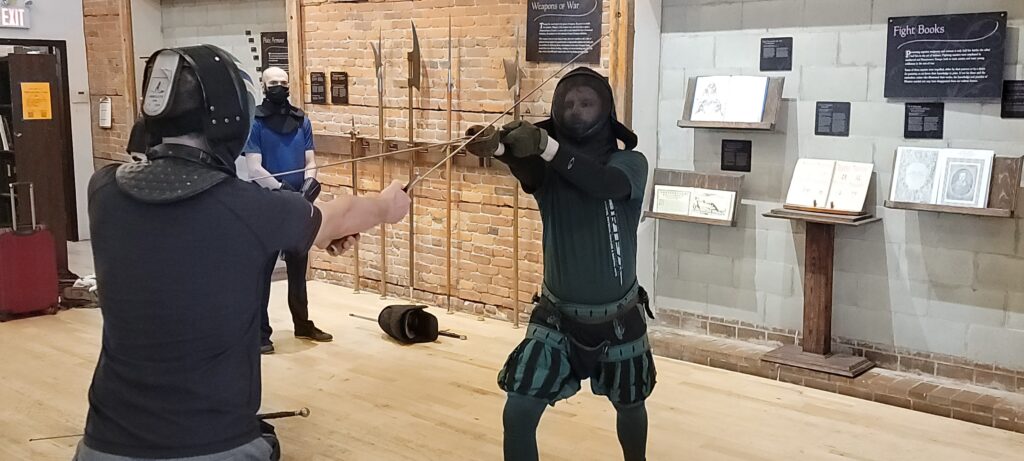
On Saturday night we hosted an Accolade Tournament called the Sala d’Arme. The participants were tasked with sparring a series of bouts with as many others as possible. These bouts focused on displaying martial skill, friendly exploration, and putting into practice the weekend’s lessons. Ballots were then cast at the end of the evening for the fighter that showed the best expression of the art, the most prowess, and the best martial spirit.
Our winners
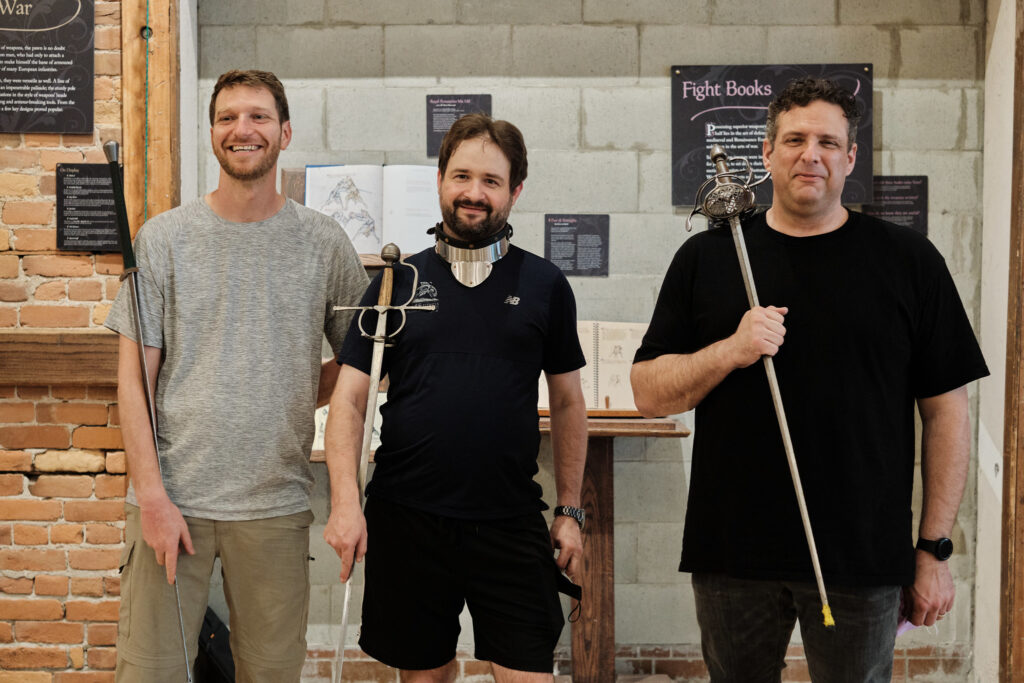
From left to right: Andy (Portland) spirit award, Jon (Vancouver) prowess award, Damon (Seattle) art award.
I love this peer-evaluated format of tournament as it encourages as much sparring art as possible while removing much of the ego that is present in other formats.
Closing Thoughts
I think this was a really unique event. The quality of the students and the focus of the subject matter made every moment of it valuable and special. It is a rare thing to have students in a class who are as well read in the source material as I am, or to be able to have debates with other instructors over an interpretation where everyone is open to alternative ideas and is seeking the best result.
Having the entire event on site meant that not only did I get a chance to really show off Academie Duello, which I’m always proud to do, but also that there was more room to get into interesting conversations in the lounge, and keep them going as we all walked over to nearby food and drink.
Honestly, I do love our huge VISS events where we have 20 or more instructors from all over the world comparing their often far-ranging arts. Yet this intimate affair brought a type of closeness and collaborative atmosphere that I wish existed at more events.
I think we’ll do it again.
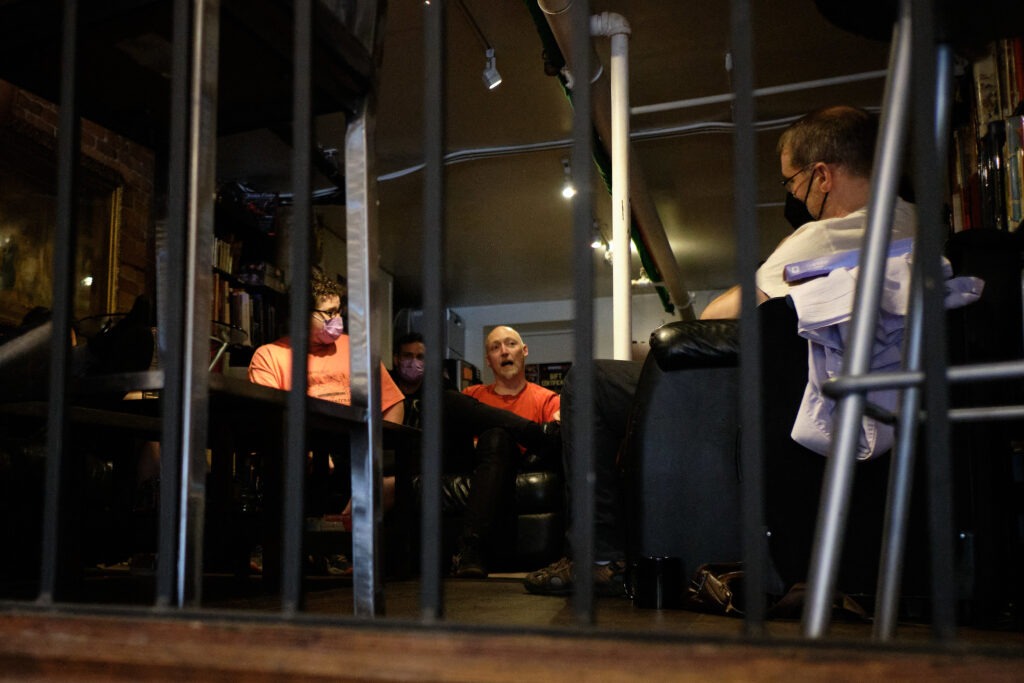
My hat’s off to all my fellow organizers: Jaclyn Ruth (chair), William Ruth (treasurer), Stephen Fratus (events & marketing), and Dave Wayne (volunteers). And also to our amazing volunteers, instructors, and of course the attendees—thank you for making this such an amazing event to host and instruct at.
